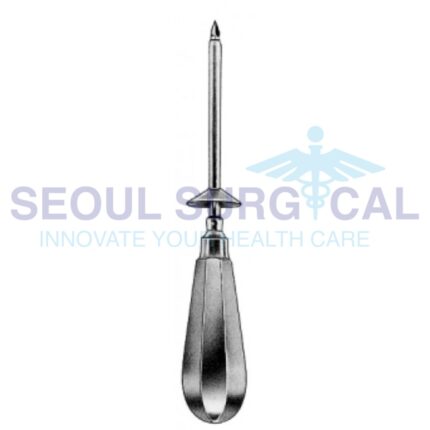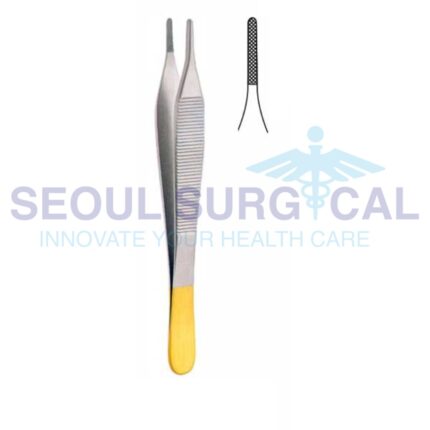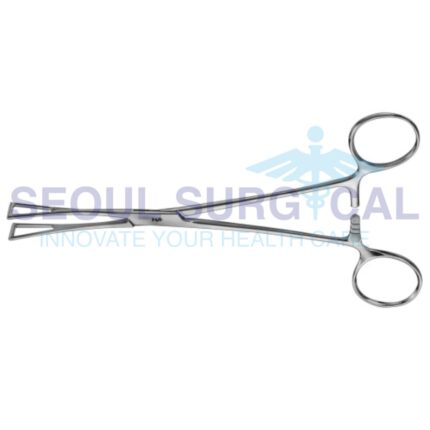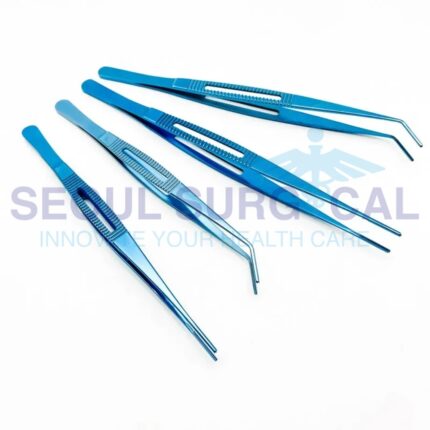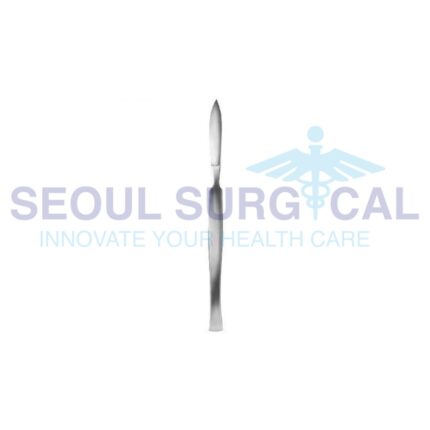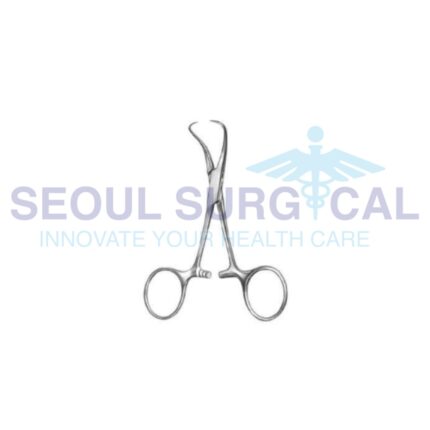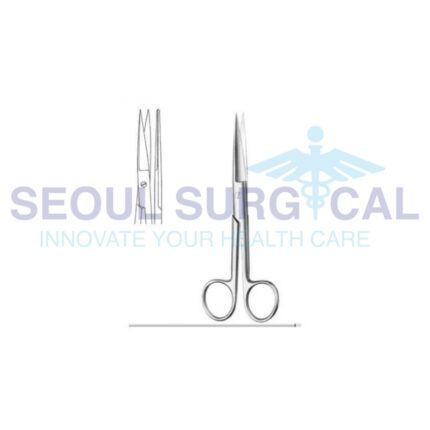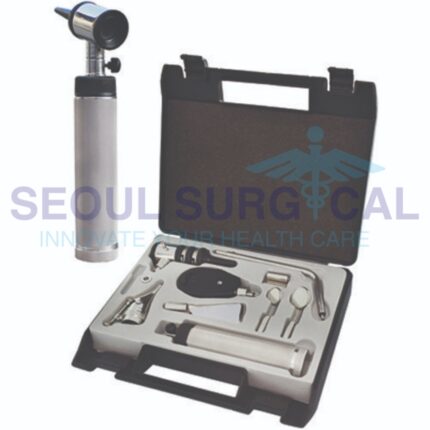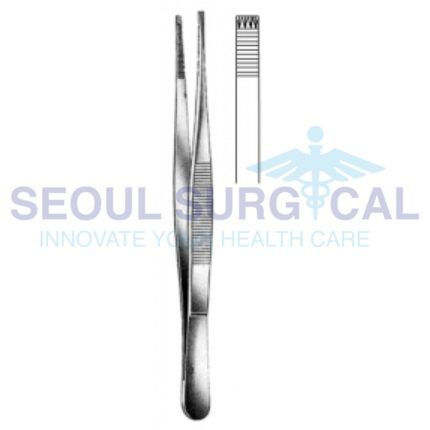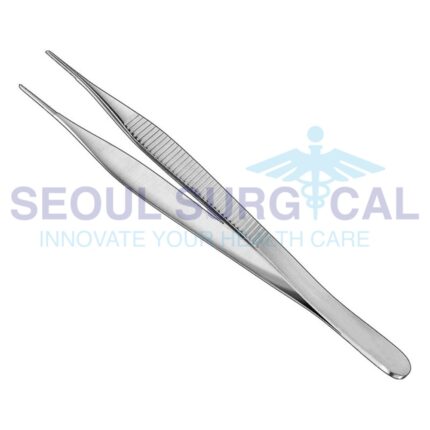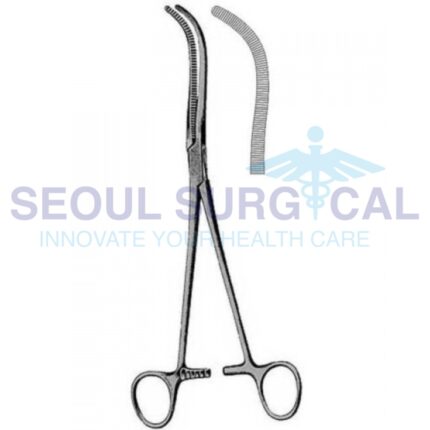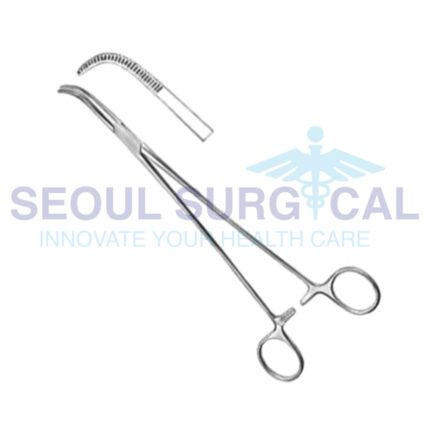Piercing Precision: Trocars and Suction Tubes in Minimally Invasive Surgery
In laparoscopic surgeries, trocars are initially used to create access ports, and once access is established, various instruments, including suction tubes, can be introduced through these ports. Trocars are typically inserted under direct visualization using a camera system, allowing the surgeon to monitor the entry into the abdominal or thoracic cavity.
Pinpoint Accuracy: A Guide to Surgical Techniques with Dissecting Forceps
The selection of dissecting forceps depends on the specific surgical or dissection task at hand, the size and type of tissues being manipulated, and the surgeon's preference. Dissecting forceps are typically made of high-quality surgical stainless steel and are subjected to sterilization processes before use in surgical procedures to maintain aseptic conditions.
Precise Grasping: Navigating Surgical Procedures with Organ Grasping Forceps
Precision at the Micro Level: Exploring the World of Atraumatic Micro Forceps in Surgery
These forceps are typically made from high-quality materials such as stainless steel and are designed to withstand repeated sterilization for use in aseptic surgical environments. Surgeons use atraumatic micro forceps to ensure minimal tissue damage during delicate procedures, such as those in ophthalmology, neurosurgery, and plastic surgery, where precision and gentle tissue handling are crucial for successful outcomes.
Precision Blades: The Art and Science of Surgical Scalpels in Urological Surgeries
It's important to note that the proper handling, sterilization, and disposal of surgical scalpels are crucial for maintaining a sterile surgical environment and preventing the spread of infections. Surgeons and healthcare professionals choose the appropriate type of scalpel based on the specific requirements of the procedure and the characteristics of the tissues being incised.
Precision Control: Bile Duct Clamps and their Crucial Role in Surgical Precision
These clamps are typically made of stainless steel or other materials compatible with sterilization procedures. The choice of a specific bile duct clamp depends on the nature of the surgical procedure, the anatomical location, and the surgeon's preference. Bile duct clamps are crucial tools that allow surgeons to safely and temporarily control the flow of bile during various hepatobiliary and pancreatic surgeries, contributing to the success and safety of these procedures.
Precision Cuts: Unveiling the Excellence of Surgical Scissors in Urology
It's important to note that proper care and maintenance, including regular sharpening and sterilization, are essential to ensure the effectiveness and longevity of surgical scissors. Surgeons and healthcare professionals select the appropriate scissors based on the specific requirements of the surgical procedure and the nature of the tissues being cut.
Precision Diagnostics: A Comprehensive Guide to Diagnostic Instruments in Healthcare
Precision Dressing: A Comprehensive Guide to Dressing Forceps in Wound Care
Dressing forceps play a crucial role in maintaining aseptic conditions during medical procedures, especially during wound dressing changes. They are used by healthcare professionals in various specialties, including general surgery, orthopedics, dermatology, and wound care. Proper handling and sterilization of dressing forceps are essential to prevent infections and ensure patient safety. The choice of dressing forceps depends on the specific requirements of the procedure and the preferences of the healthcare provider.
Precision Extraction: Navigating Splinter Removal with Specialized Forceps
When using splinter forceps, it's important to follow proper hygiene practices and clean the forceps before and after each use. Sterilization may be necessary, especially in clinical settings, to prevent infection. Splinter forceps are a handy tool for prompt and precise removal of foreign bodies, providing relief and preventing potential complications associated with embedded objects in the skin.
Precision Grasp: Unraveling the Mastery of Dissecting Ligature Forceps in Surgery
These forceps are typically made of high-quality surgical stainless steel, and they undergo sterilization before use in surgical procedures. The choice of dissecting ligature forceps depends on the specific surgical or dissection task at hand, the size of the tissues being manipulated, and the surgeon's preference. The delicate design of these forceps allows for precise and controlled tissue handling during intricate surgical procedures.
Precision Grasping: Enhancing Surgical Techniques with Peritoneum Forceps
The choice of peritoneum forceps depends on the nature of the surgical procedure, the specific tissues being manipulated, and the surgeon's preference. These forceps are made of high-quality materials such as stainless steel and are subjected to sterilization processes before use in surgery to maintain aseptic conditions. The delicate and precise design of these forceps allows surgeons to handle peritoneal tissues with care during abdominal and pelvic surgeries.

